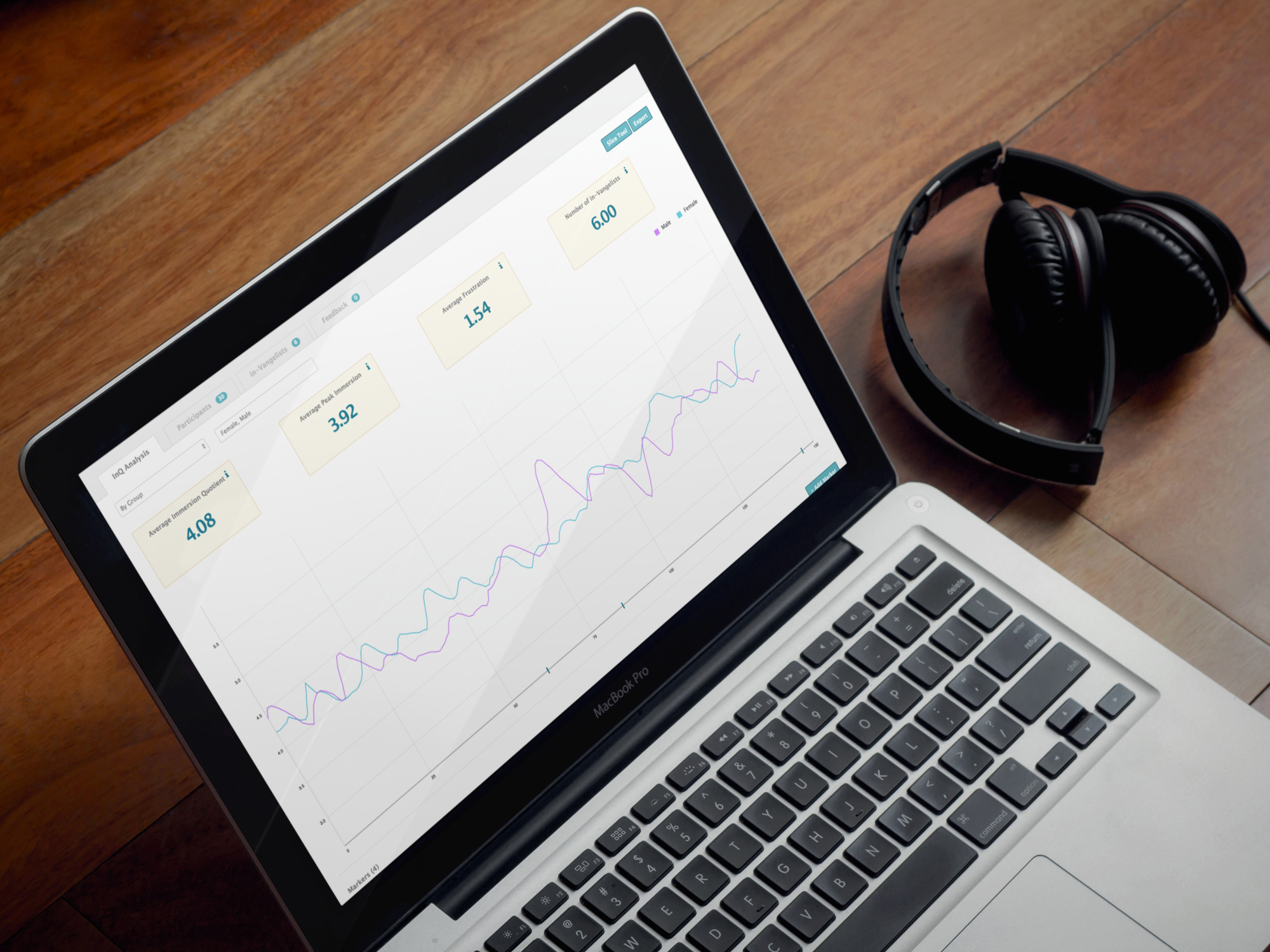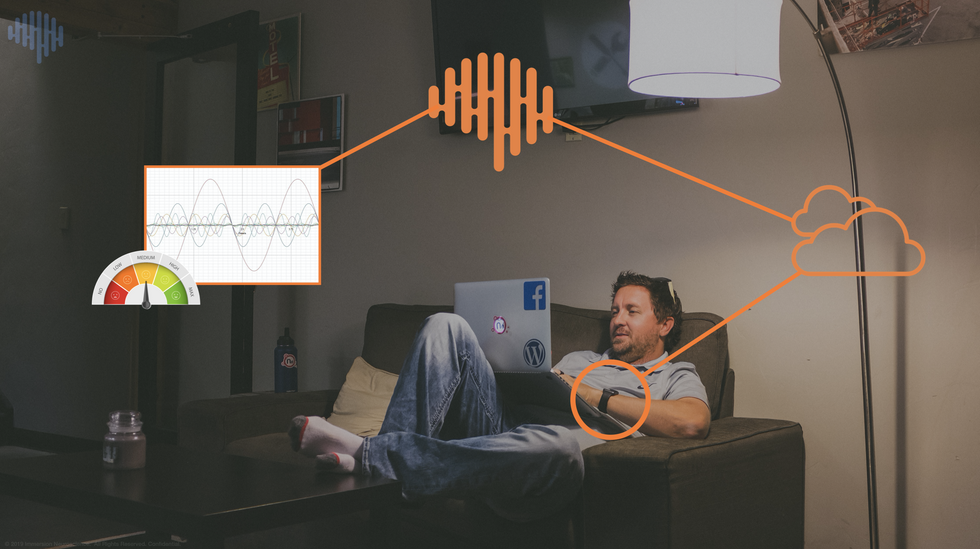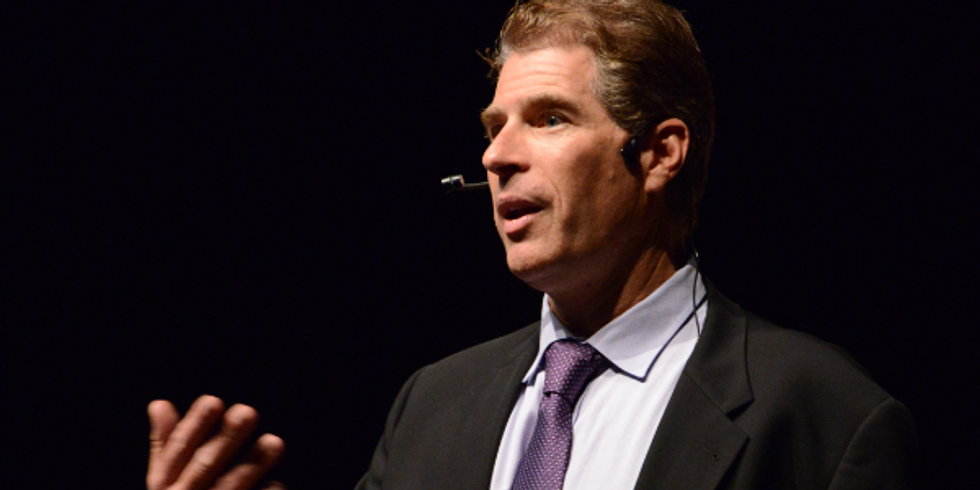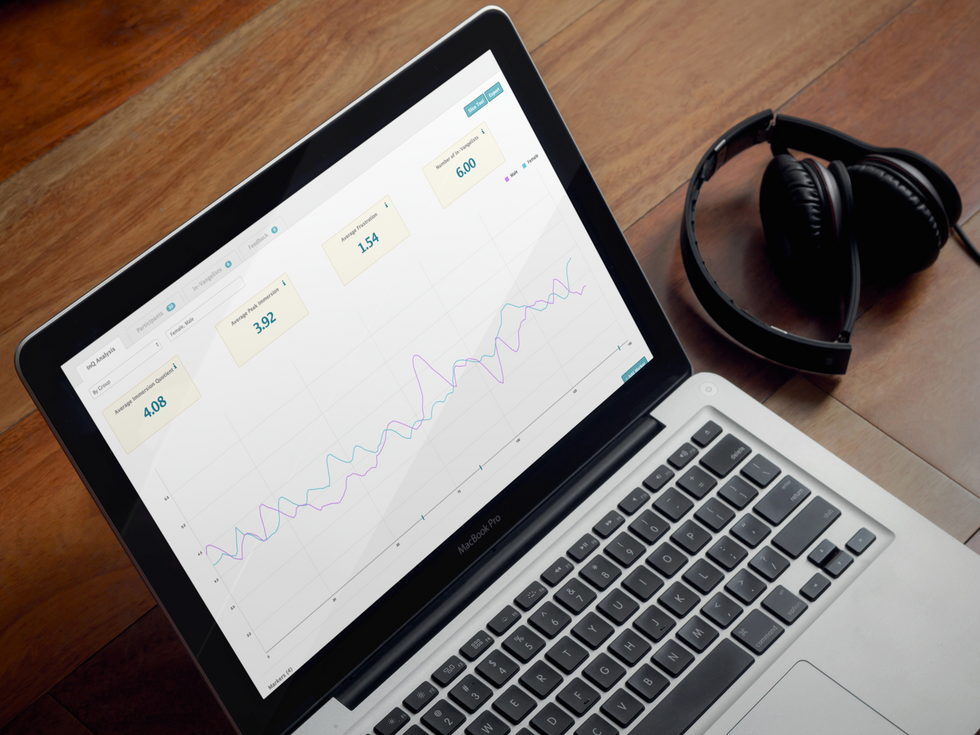This New L.A. Tech Startup Measures 'Audience Love' Through Biosensors
Sam primarily covers entertainment and media for dot.LA. Previously he was Marjorie Deane Fellow at The Economist, where he wrote for the business and finance sections of the print edition. He has also worked at the XPRIZE Foundation, U.S. Government Accountability Office, KCRW, and MLB Advanced Media (now Disney Streaming Services). He holds an MBA from UCLA Anderson, an MPP from UCLA Luskin and a BA in History from University of Michigan. Email him at samblake@dot.LA and find him on Twitter @hisamblake

Bob Gerard was sitting in an office room, having just watched a public service announcement while wearing a sensor that Dr. Paul Zak had wrapped around his arm.
"When it was done," said Gerard, who had been introduced to Zak by a mutual friend who thought Zak could help Gerard improve his internal training sessions at Accenture, a professional services firm, "Paul showed me the graph that the sensor had generated, and he replayed the video. As it was replaying, he was telling me exactly what I was feeling as he was reading it off the chart. My first thought was: I need this."
What this is, is called Immersion: a software program that, in the words of the L.A.-based startup's Chief Executive Scott Brown, "measures love." The sensor monitors how a person's brain responds to a given stimulus, moment by moment. And the readout that the software generates, for up to dozens of people at a time, provides real-time feedback that could be useful for everything from testing Hollywood audiences to understanding what resonates during a presentation.

Based on 20 years of scientific research, the company said, the technology can be used to understand which moments in a piece of content — a trailer, an advertisement, a lecture — are emotionally resonant, and which moments aren't. Creators can then adjust accordingly, and gain insight from algorithmic predictions about what actions people will take in response.
Immersion, Zak explained, specifically measures two factors in the brain: attention, and emotional engagement. When these two levels are high, Zak said, a person is immersed in the material at hand.
The company, which was founded less than three years ago and has mainly been in stealth mode, grew from Zak's work as a social sciences researcher and professor at Claremont Graduate University. He is also the director of the Center for Neuroeconomics Studies, which "develops neuroscience technologies to understand how people make decisions." Zak said the two main client uses of Immersion have been entertainment — such as for film, TV shows or advertisements — and corporate trainings.

Zak's research, which has received funding from the U.S. Department of Defense and Intelligence community, produced a set of findings that eventually formed into Immersion's commercial product. He found that oxytocin, a molecule produced in mammals, strongly correlates with emotional resonance, and he figured out how to measure oxytocin levels and attention non-invasively. Immersion's sensors — and, as of this week, other sensors like the Apple Watch or Fitbit Versa — can capture that data, then upload it into Immersion's software, which displays people's neurologic responses in a way that is designed to allow users like Gerard to get insight about their content "without having to have a PhD in data science," Zak said.
At Accenture, Gerard estimates that he's used Immersion for hundreds of classes and thousands of trainees since signing up for the subscription service. The program has helped to reveal which parts of trainings are engaging and should be expanded, and which parts are snoozers and need to be improved. Gerard has also experimented with using Immersion for sales training workshops, wherein two employees role-play a sales pitch while the one playing the customer wears a sensor that monitors her reactions and displays them to the class in real time.

Brown and Zak said Immersion has also been designed to enable clients to predict future behavior. In fact, they claim, because it relies on brain measurement rather than what people say, Immersion can understand audience response and intent better than audiences understand themselves.
When someone's levels of emotional resonance and attention are high, Zak explained, the brain "tags" those moments as "more relevant." These moments become "more easily recalled, and therefore more likely to be acted upon," Zak said. That is, the more that one is "immersed" in the content, the more likely they are to, say, watch the film (ie, if the piece of content is a trailer) or buy the product (if it's an ad). Immersion can also, Brown said, predict whether a piece of content will be a hit. Based on numerous studies, including with big companies like Facebook, Paramount and Warner, Immersion claims predictive accuracy of over 80%.
One hurdle that Immersion faces to growing is skepticism about a "big brother" omniscience about people's "true" feelings. Zak emphasized, however, that users must opt in to having their brain activity tracked, and that clients decide how much data to collect. Accenture, for example, chooses not to gather any personally identifiable information, Gerard said. Zak also suggested to dot.LA that being able to identify specific individuals who were highly immersed could be beneficial, as those people could be used as evangelists or for peer support.
The coronavirus pandemic is not exactly well timed for the company that according to Zak is "just now taking the lid off" and doesn't have a full-time marketing team, but the founder is confident his company will survive. While some clients, including a major studio and a large appliance-maker, have had to put their subscriptions or negotiations on hold, interest is perking up elsewhere. As companies and society experiment with distributed work, Zak is hopeful that his distributed neuroscience firm – subjects need not congregate in the same room – can fill a void. He's in talks with several potential new clients that are working from home at a distance.
"You want to test content and see what the brain's responding to?" Zak asked. "Right now, we're the only game in town."
---
Sam Blake covers media and entertainment for dot.LA. Find him on Twitter @hisamblake and email him at samblake@dot.LA
- Immersion Tracks Brain Activity to Improve Entertainment. - dot.LA ›
- How SocialCrowd is Directly Increasing Employee Productivity - dot.LA ›
Sam primarily covers entertainment and media for dot.LA. Previously he was Marjorie Deane Fellow at The Economist, where he wrote for the business and finance sections of the print edition. He has also worked at the XPRIZE Foundation, U.S. Government Accountability Office, KCRW, and MLB Advanced Media (now Disney Streaming Services). He holds an MBA from UCLA Anderson, an MPP from UCLA Luskin and a BA in History from University of Michigan. Email him at samblake@dot.LA and find him on Twitter @hisamblake



 Image Source: Revel
Image Source: Revel
